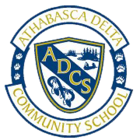Cultural Enrichment: Students enrolled in the Indigenous-focused afternoon programming will experience a profound cultural enrichment that goes beyond traditional academic boundaries. The curriculum's integration of Indigenous perspectives into Physical Education, Health and Wellness, Art, and Music courses will provide students with a deeper understanding and appreciation for Indigenous cultures. Indigenous students, in particular, will cultivate a sense of pride and connection to their heritage through engaging activities led by community members, with the invaluable support of dedicated teachers.
Holistic Well-being: The incorporation of traditional practices in the curriculum is designed to contribute significantly to the holistic health and well-being of students. Beyond academic growth, this initiative aims to foster a positive and supportive school culture where students feel valued and supported in their journey towards overall well-being. By emphasizing cultural teachings related to physical and mental health, the program addresses the broader aspects of student development, promoting a more holistic approach to education.
Community Empowerment: The proposed transition to a community-run school is a pivotal aspect of this initiative, empowering local community members to actively participate in shaping the educational experience. This collaborative model allows community members to directly engage with students, sharing their knowledge and teachings while benefiting from the resources and support provided by ADCS. This transition will not only build a stronger sense of community ownership but will also instill a collective responsibility for the school's success. The envisioned school will become a hub where students and the community converge to learn, teach, and grow together.
In essence, this initiative goes beyond conventional educational approaches, embracing a holistic and community-oriented model that not only benefits the students but also contributes to the cultural fabric and vitality of Fort Chipewyan. As we look forward to the positive outcomes that will undoubtedly emerge, it is clear that this initiative marks a significant step towards creating an inclusive, culturally rich, and engaging educational environment for all involved.
